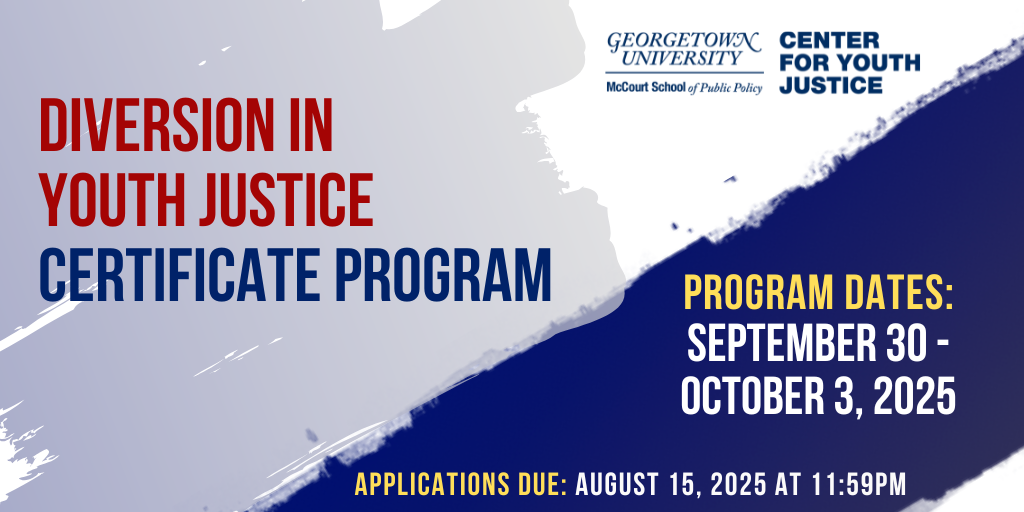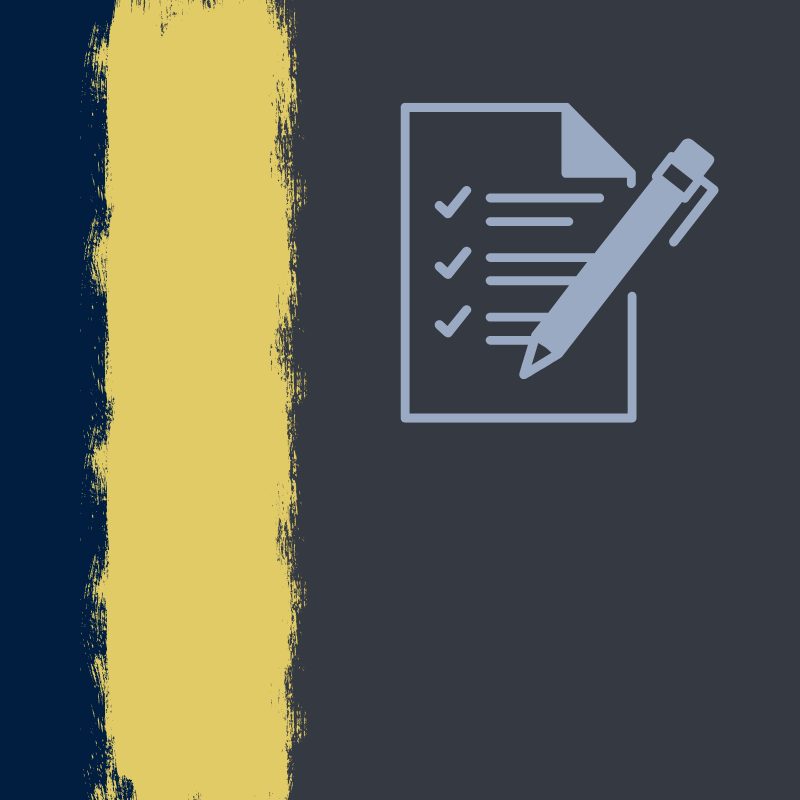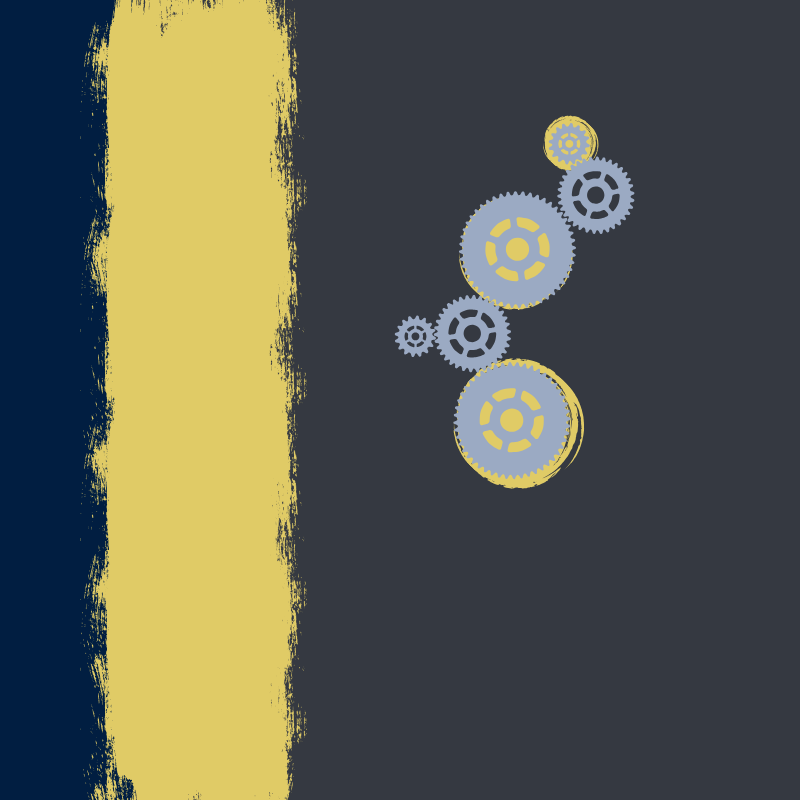Diversion in Youth Justice

The Diversion in Youth Justice Certificate Program is designed to equip multidisciplinary teams, including court and legal personnel, law enforcement, behavioral health providers, educators, and community leaders, with the knowledge, frameworks, and collaborative skills necessary to establish, implement, and sustain effective diversion initiatives. Participants will learn about the research behind diversion, examine diversion as a key decision point for advancing equity, and explore promising alternatives such as pre-arrest and pre-court diversion models. This Certificate Program also emphasizes the distinction between diversion and deflection, the risks of net-widening and eligibility creep, and the importance of community-led and restorative responses that address the root causes of young people’s misbehaviors.
Throughout the training, participants will engage in facilitated discussions, peer learning exercises, and reflection activities to explore diversion strategies and practices that shift power from systems to communities. The curriculum highlights innovative models from across the country, including pre-arrest diversion programs, school-based initiatives, and community-driven restorative justice efforts. Hands-on planning time is embedded throughout the training to support teams in developing action plans aligned with their local priorities.
After completing the program, participants will be responsible for the development of a data-driven local Capstone Project. After the Capstone Project is developed by the participating jurisdiction and approved by Georgetown University, participants will receive an Executive Certificate from the university and become members of the Fellows Network. Additionally, all participants are offered technical assistance from instructors to aid in the implementation of their project.
Curriculum
The Diversion in Youth Justice Certificate Program is designed to equip multidisciplinary teams with the knowledge, tools, and collaborative strategies needed to embed diversion as the cornerstone of their local youth justice practices. Grounded in positive youth development, racial equity, and community empowerment, the program blends evidence‑based content with hands-on planning, peer exchange, and technical guidance. Throughout four intensive days, participants will move from a shared definition of diversion to an actionable plan for expanding community‑led, developmentally responsive alternatives to formal system involvement.
The curriculum covers the following themes:
Selection Criteria
The Diversion in Youth Justice Certificate Program is designed for individual professionals and multidisciplinary teams working in youth justice, child welfare, education, mental and behavioral health, law enforcement, and community-based organizations who are well-positioned to advance meaningful and sustainable diversion efforts in their jurisdictions. Applications from multidisciplinary teams will receive greater preference and higher priority in the selection process. Applicants are strongly encouraged to apply as a team of up to 10 people, as this structure better supports cross-sector collaboration and the implementation of system change efforts following the program.
Required team members for county or city-level teams include:
- A leader from a community-based provider organization actively involved in diversion initiatives
- A young person or family representative with lived experience in the youth justice system
- A senior youth justice administrator (e.g., chief juvenile probation officer, director of a youth justice department)
- A judge or senior court administrator
- A prosecutor or a senior staff member from the District Attorney’s Office
To strengthen local coordination and deepen system impact, you may consider including:
- A Public Defender or youth/family advocate
- An education representative, such as a school district leader or educational advocate
- A law enforcement leader, including a school resource officer if applicable
State-level teams focusing on diversion initiatives are also encouraged to apply. We recognize that the composition of state teams may differ from that of local teams. If any of the required roles listed above do not apply to your team, you will have the opportunity to explain those differences and describe your rationale in the application. We also invite prospective state teams to contact CYJ teams in advance to discuss how best to align their structure and goals with the program framework.
Application Guidelines
Applications are now open! Applications will be accepted until 11:59 p.m. on Friday, August 15, 2025 (in the applicant’s local time zone). Please download the RFA below for additional information.
While each team member is required to submit an application online, only ONE set of Background Question Responses is required per team. If you have been designated to submit essay responses on behalf of your team, you will be prompted to upload them as part of your application.
If you are the designated team liaison, or an individual applicant applying without a team, please:
- Download and complete the Background Question Form.
- Submit your full application on our Application Portal.
If you are a team member and NOT responsible for responding to the Background Questions, please:
- Submit your full application on our Application Portal.
After submitting your application, you will receive a confirmation email within the week. If you do not receive a confirmation, or if you have any questions regarding the application process, please contact CYJ staff at centerforyouthjustice@georgetown.edu.
More Information
As part of the Certificate Program, participants are required to develop and implement a Capstone Project during the twelve-month period following the completion of their Certificate Program session.
The primary goal of all of our Certificate Programs is not simply knowledge, but effective implementation in a local reform effort. We study “what works” and collaborate with leaders to bridge the gap between theory and practice.




